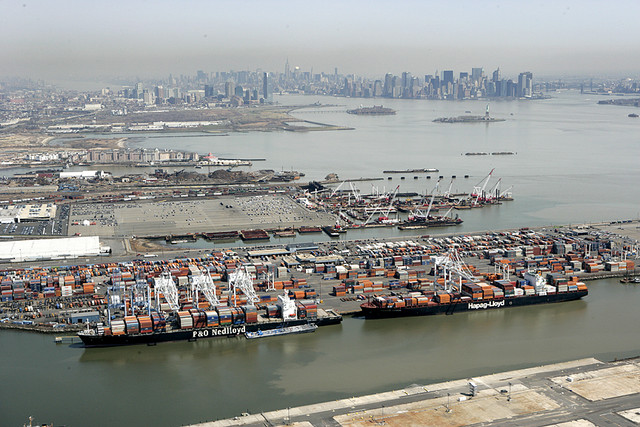A collection of port studies that explore the changing relationship between institutional frameworks and the development of transportation nodes are included in the recently published special issue of the journal Journal of Transport Geography. The theme of this issue of the prestigious scholarly journal (vol. 27, 2013) is “Institutional Frameworks and the Transformation of Transport Nodes”, with PortEconomics co-director Thanos Pallis, associate member Adolf Ng, and Prof. Peter Hall (Simon Fraser, Vancouver CA) acting as guest editors.
As Adolf, Peter and Thanos point in their guest editorial:
- “Guest editors’ introduction: institutions and the transformation of transport nodes” (by Ng, A.K.Y., Hall, P.V. and Pallis A.A.)
- “Path dependency and regional port authorities: A case for innovation network leadership?” (by Cahoon, S., Chen, S-L., and Haugstetter, H.).
- “Governing the European Port-City Interface: Institutional Impacts on Spatial Projects between City and Port” (by Daamen, T.A. and Vries, I.).
- “Shaping port governance: the territorial trajectories of reform” (by Debrie, J., Lavaud-Letilleul, V. and Parola, F.).
- “Stakeholder management and path dependence in large-scale transport infrastructure development: the port of Antwerp case (1960-2010)” (by Dooms, M., Verbeke, A. and Haezendonck, E.).
- “The Heartland Intermodal Corridor: public private partnerships and the transformation of institutional settings” (by J. Monios & Lambert B.).
- “Institutions, Bureaucratic & Logistical Roles of Dry Ports: The Brazilian Experience”, (by Ng, A.K.Y., Padilha, F. and Pallis, A.A.):
- “Institutional plasticity and path dependence in seaports: Interactions between institutions, port governance reforms and port authority routines”. (by Notteboom, T., De Langen, P and Jacobs, W. 2013)












